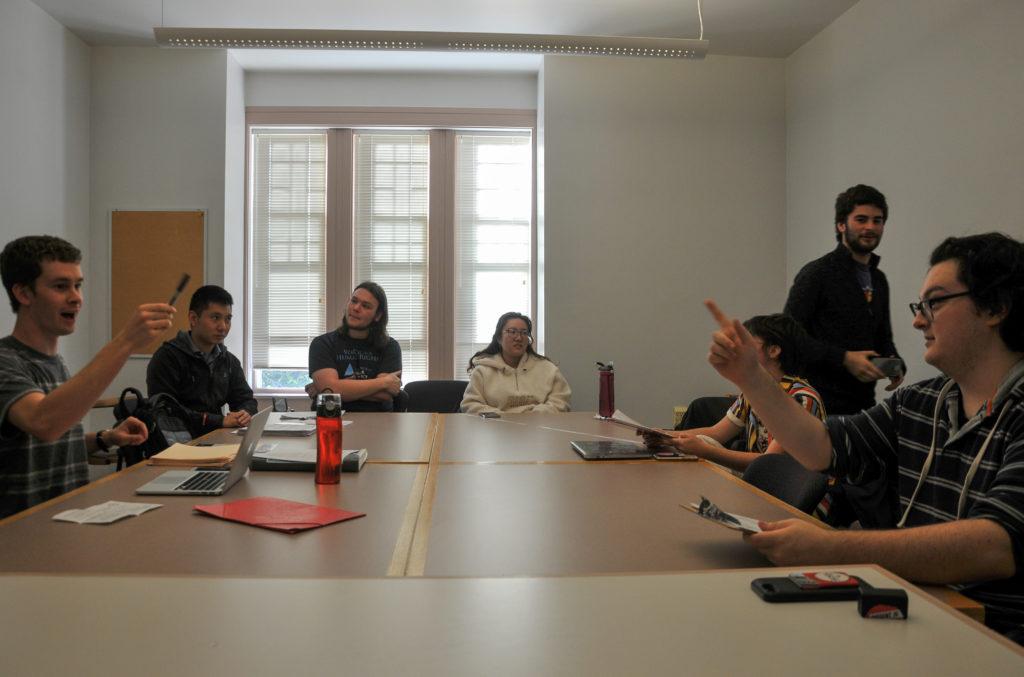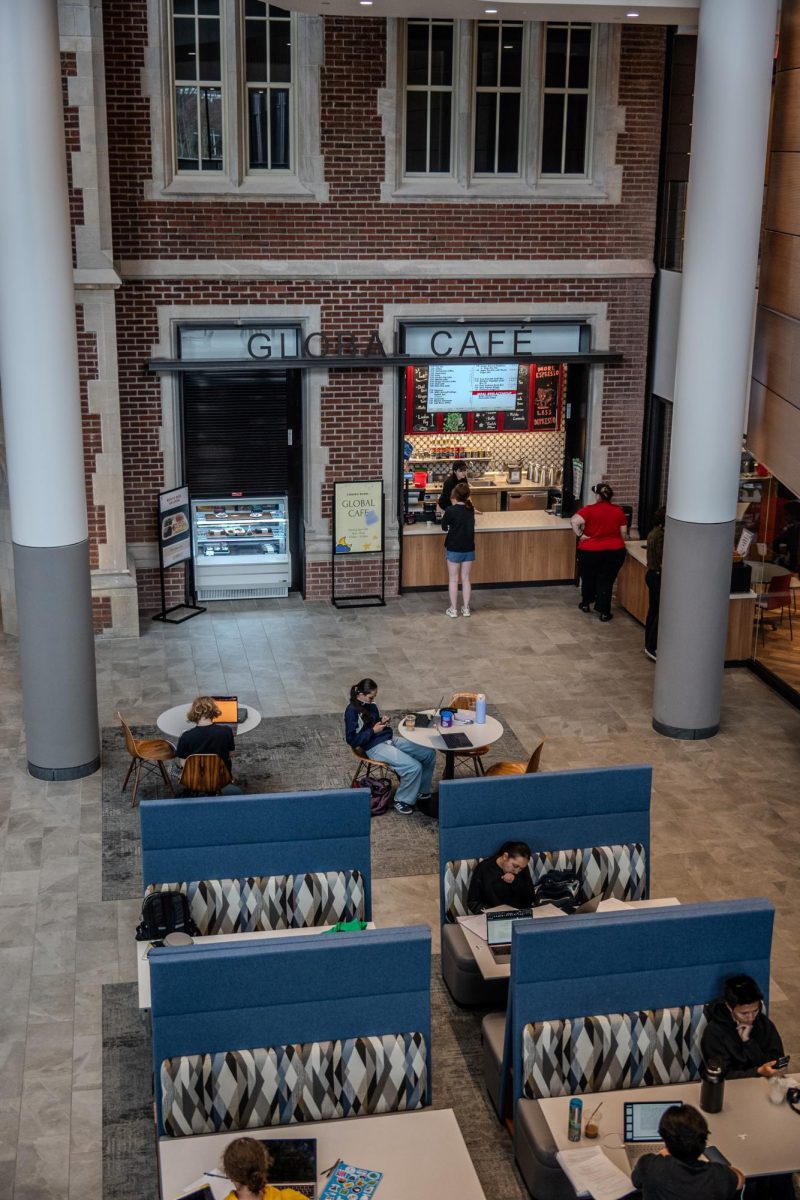The Union of Grinnell Student Dining Workers (UGSDW) has worked towards bringing all on-campus student workers into the union, rather than just student employees in dining services. While the group has made significant steps regarding benefits for workers in dining services, members of the USGDW board say that there has been resistance from the College’s administration regarding the union’s expansion.
Members of UGSDW have collected signatures of non-dining student workers to join the union. They received signatures of more than 30 percent of the student population, allowing the union to file a petition with the federal National Labor Relations Board. This is the first step towards ultimately having a union election to allow UGSDW to expand and represent all student workers at the College.
“From the beginning, this administration indicated its opposition to the expansion of our union into non-dining positions, citing these positions’ educational nature and how the process of organizing a union and collective bargaining will harm such an educational nature,” said Sam Xu ’20.
Recently, the UGSDW board asked College President Raynard Kington how exactly the expansion of the union would harm the educational relationship between students and Grinnell College. According to the official UGSDW Facebook page, President Kington responded, “It redefines the nature of those positions, and the relationship between the people in those positions and the institution, and to the extent that it therefore, sort of can impact those positions, and how they’re overseen, and how they function, and how they interact with the persons in them, it affects our core mission, that’s the whole — it’s sort of circular, it’s part of the core mission, because it’s part of the core mission, that’s why we like — we think it’s important to maintain the status as a status consistent with our core mission.”
The board believes that the President’s response was too vague and did not convince them to halt their mission of expansion.
Despite any opposition from the College’s administration, the recent successes in dining services led by UGSDW have fueled their goal.
“Our primary drive has been the response that we’ve seen in dining services as well as the reactions we’ve seen from people who have left dining services,” said Quinn Ercolani ’20.
Recently, the union successfully raised the wages of student dining workers to a starting wage of $9.76 and a maximum of $11.53 for student leaders and students with longer experience working for dining. Ercolani also cited an improvement in understaffing in dining services, as a success.
“People are enjoying their work experiences more, they’re getting paid more and being able to afford to live in Grinnell and go to a very expensive institution,” he said.
Despite progress in dining services, students in different jobs across campus experience a variety of issues that the union wants to resolve. One pressing issue is that many transgender students feel uncomfortable with coming out in the workplace setting due to fear of discrimination. Another issue is discussing mental illness in the context of how it may affect students’ ability to work. According to general surveys conducted by UGSDW, 4.2 percent of respondents said that they had experienced harassment and 16.7 percent experienced discrimination in the workplace.
“These concerns are not isolated instances, which would only require minor fixes. We think that these issues are recurring themes, are an experience in Grinnell, and these problems are emblematic of the larger structural problem that student workers do not have a say in their workplace,” Xu said.
Ercolani furthered Xu’s point, citing the need for the College to recognize the distinct concerns and multiple responsibilities of student workers.
“We are multifaceted human beings who need to be able to function both in an academic setting but also in the workplace. We believe that the union can really give a voice to these concerns and make it so that the administration at the very least has to hear what is actually going on,” Ercolani said.
By joining the union, there is no requirement for participation; rather, joining the union authorizes UGSDW to be student workers’ collective bargaining representative. Students can become more involved by coming to monthly meetings or by running for a position on the board. For students uninterested in high levels of participation, signing up as a member can be beneficial by demonstrating their support for other student workers.
“The practical side of becoming a member is that you’re saying that the union is something you think is helpful to student workers on campus,” Ercolani said.
UGSDW emphasizes solidarity among student workers. Though some students may be unsure about personally joining, UGSDW members urge students to participate in order to show their support to student workers who would benefit greatly from the union.
“By unionizing, we can put in a lasting structure of workplace democracy and accountability in which our student workers can come together as a community and talk about our own experiences and work out a list of goals we want to achieve and have an equal say with the college administration in negotiating some parameters and terms of what our workplace experience would be,” Xu said.
























































Sharyn Obsatz • Oct 17, 2018 at 9:51 am
I am a union member at the public community college where I teach. Unions improve work conditions and help employees when they have been treated unfairly. I am surprised that Grinnell, with its stated commitment to social justice, would oppose extending union protections to its own students.